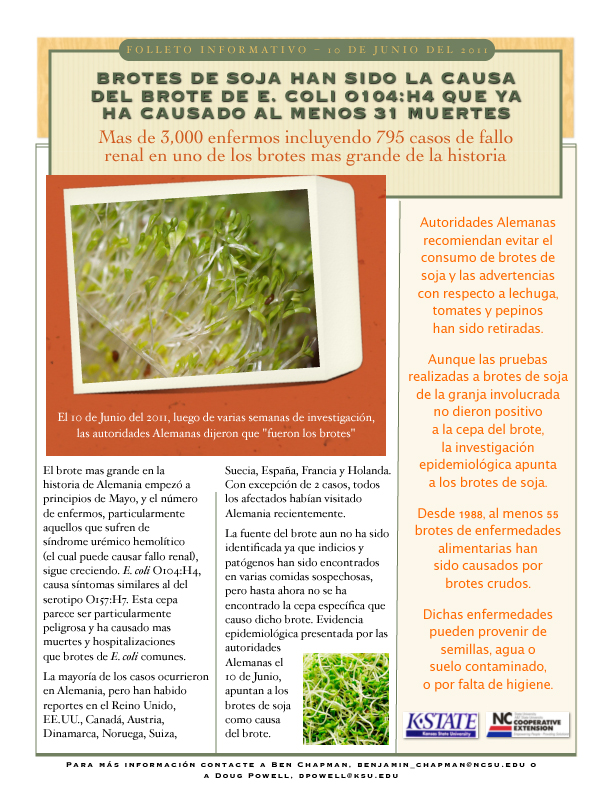As the death toll in the German E. coli O104 outbreak rose to 33, the Federal Institute for Risk Assessment (BfR) confirmed test results announced on Friday that identified bean sprouts from an organic farm in the northern village of Bienenbuettel as carrying the virulent E. coli.
A man notified authorities after suspecting he might be in possession of some of the dangerous sprouts. The Bienenbuettel farm has since closed down.
"These results are an important step in the chain of evidence," said BfR director Andreas Hensel.
The EU executive’s health chief John Dalli welcomed the confirmation.
"I welcome this extremely important development: the source of contamination is now identified and the epidemiological findings are backed by laboratory results. EU consumers .jpg) and trade partners shall now have full confidence as regards the safety of EU’s vegetables."
and trade partners shall now have full confidence as regards the safety of EU’s vegetables."
Speaking on WDR-5 radio station on Saturday, the minister for the environment and consumer protection in North-Rhine-Westphalia, Johannes Remmel, urged all consumers to report any suspicious vegetable sprouts.
But in another premature explanation, Gert Hahne, spokesman for the consumer protection office of Lower Saxony state, said today, "Everything we have looked into until now shows the farm was flawless. It is hygienic and followed all the regulations. No matter how you look at it we don’t see any fault with the farm or legal ground to hold them accountable. You cannot punish someone for having bad luck."
However the farm has been shut down. Authorities say results of tests taken there have yet to place E.coli on site, but that some 500 samples are still being examined — including some from the farm’s seeds, which came from Europe and Asia.
I don’t have confidence because no one is talking about the on-farm food safety steps that are taken other then some opaque ‘strict standards.’ Where did the seeds originate? Were they pre-treated with chlorine before germination or is that not allowed under organic standards? Is anyone checking? What is a suspicious vegetable sprout?
Faith-based food safety at its best.

.jpg) en cause n’ont pas détecté la souche épidémique, l’épidémiologie a fait le lien entre la consommation de graines germées et la maladie.
en cause n’ont pas détecté la souche épidémique, l’épidémiologie a fait le lien entre la consommation de graines germées et la maladie. Further verification is pending.
Further verification is pending. – Desde 1988, al menos 55 brotes de enfermedades alimentarias han sido causados por brotes crudos.
– Desde 1988, al menos 55 brotes de enfermedades alimentarias han sido causados por brotes crudos.
.jpeg) Saxony had come back positive, the epidemiological investigation of the pattern of the outbreak had produced enough evidence to draw the conclusion.
Saxony had come back positive, the epidemiological investigation of the pattern of the outbreak had produced enough evidence to draw the conclusion.
.jpg) Wednesday whose diet had included Biogaertnerhof vegetable sprouts.
Wednesday whose diet had included Biogaertnerhof vegetable sprouts..jpg) Saxony-Anhalt said.
Saxony-Anhalt said. offending produce was grown from a depleted batch of contaminated seed weeks ago, said James Paton, head of the bacterial pathogenesis laboratory at the University of Adelaide in South Australia.
offending produce was grown from a depleted batch of contaminated seed weeks ago, said James Paton, head of the bacterial pathogenesis laboratory at the University of Adelaide in South Australia..jpg) sprouts and their seeds was necessary to achieve full certainty.
sprouts and their seeds was necessary to achieve full certainty..jpg) from the bacteria. That figure includes 627 people who have developed a rare, serious complication that can cause kidney failure.
from the bacteria. That figure includes 627 people who have developed a rare, serious complication that can cause kidney failure.